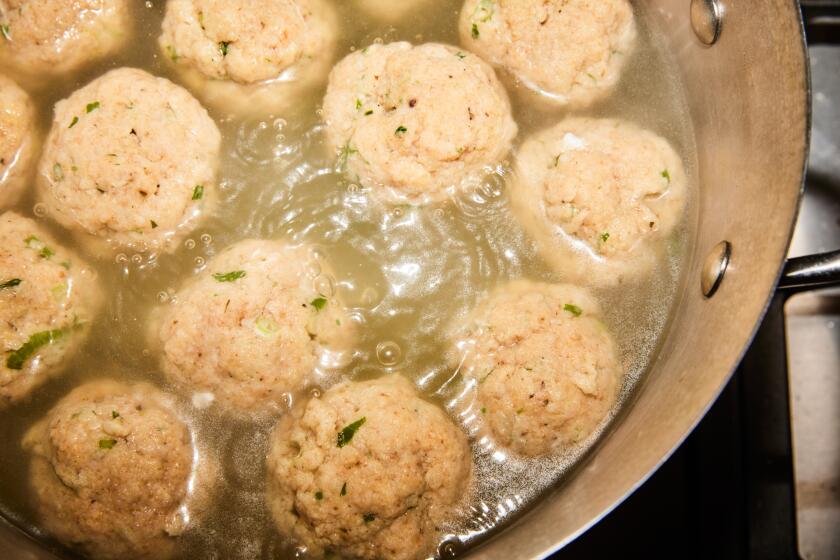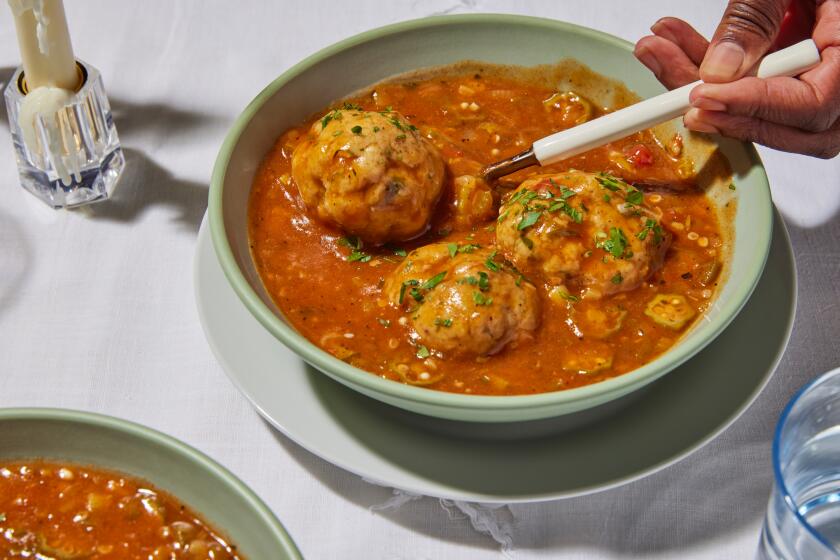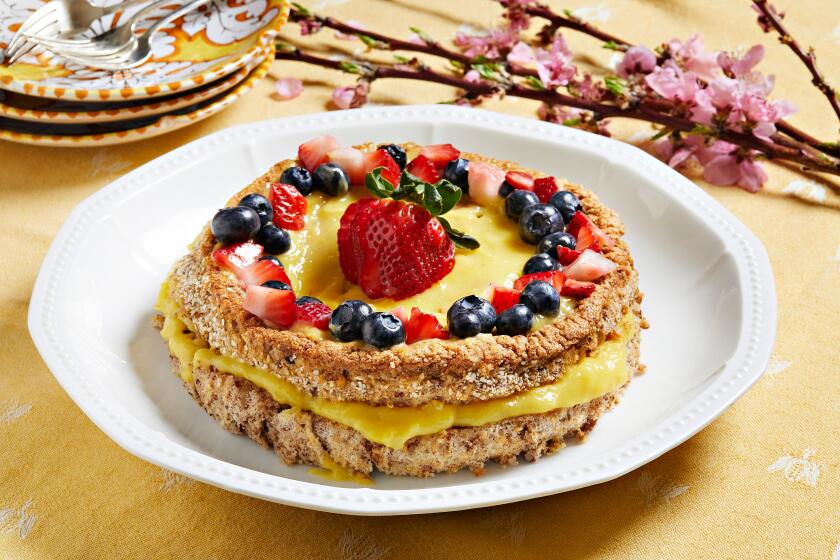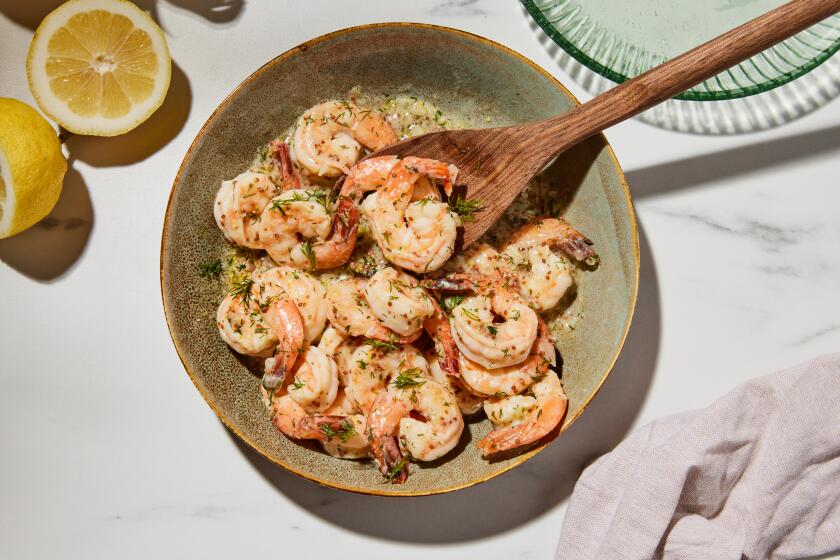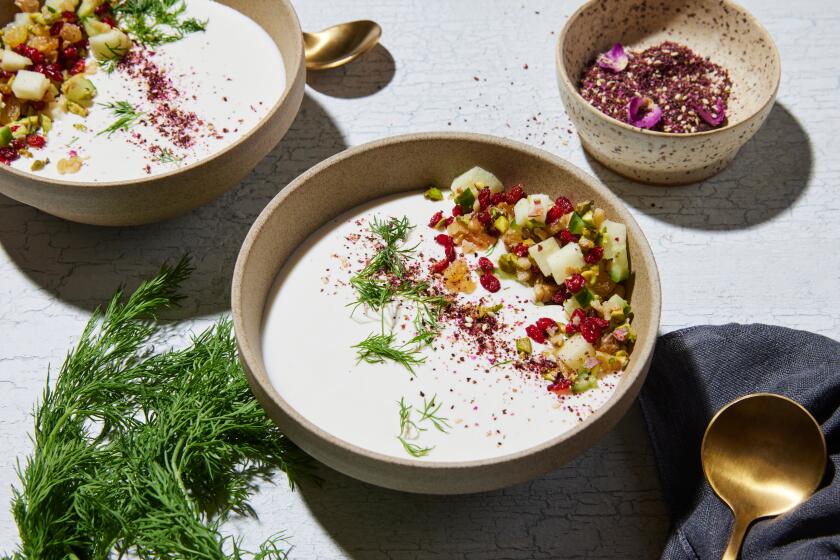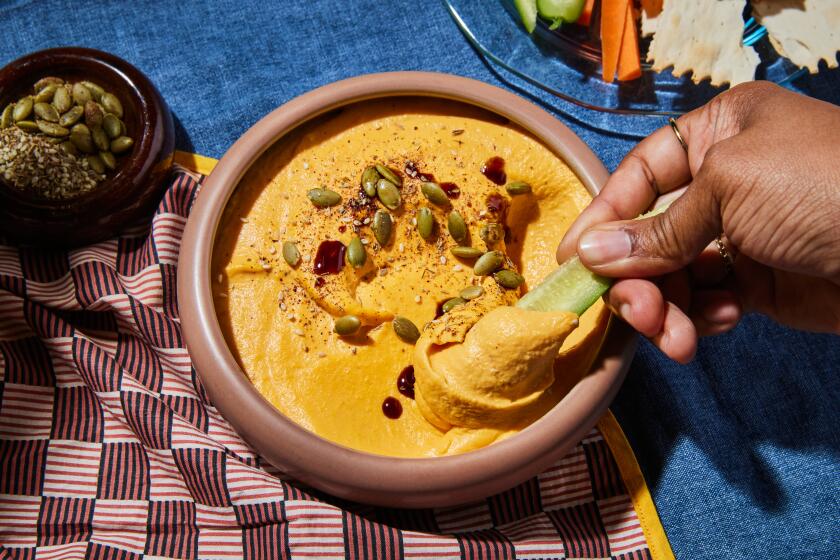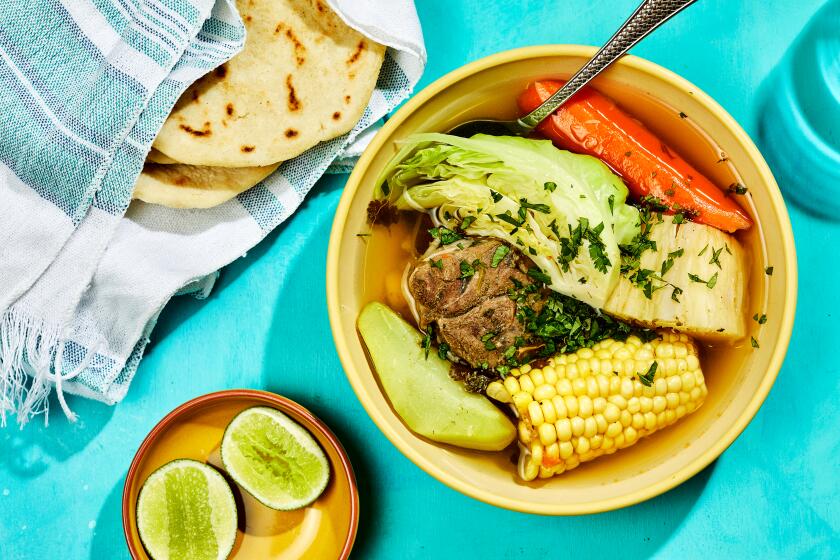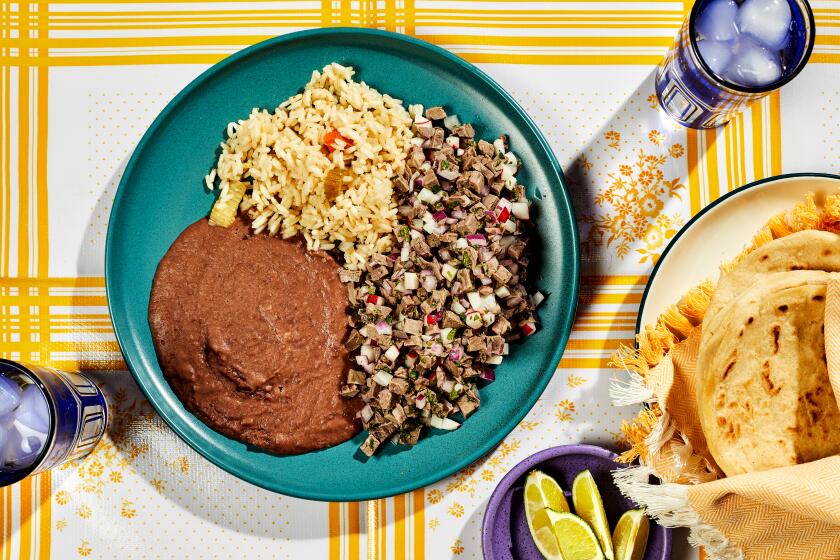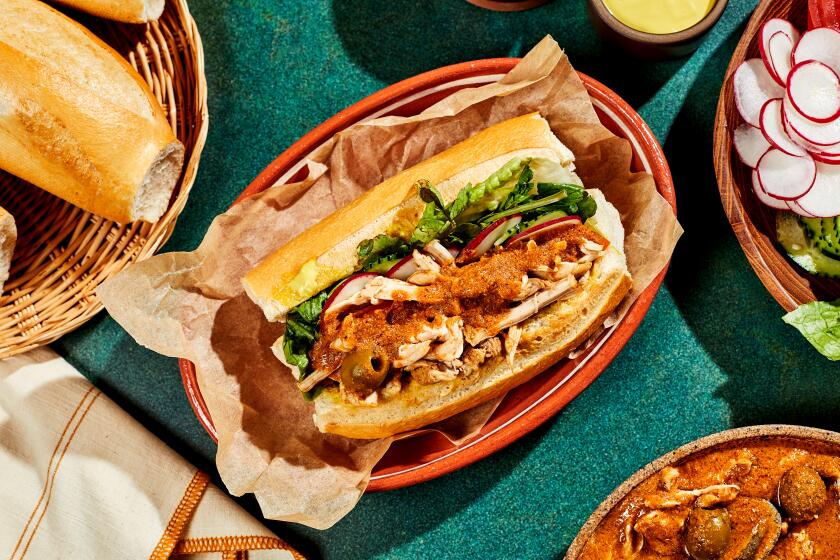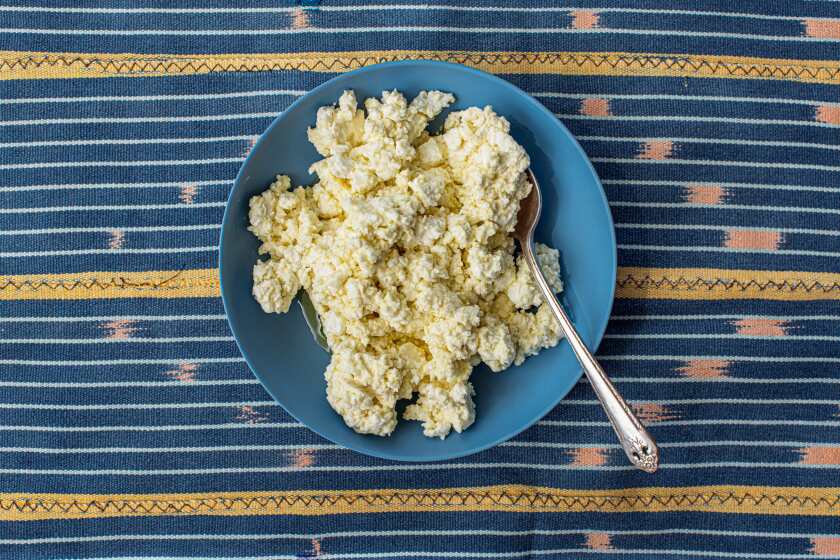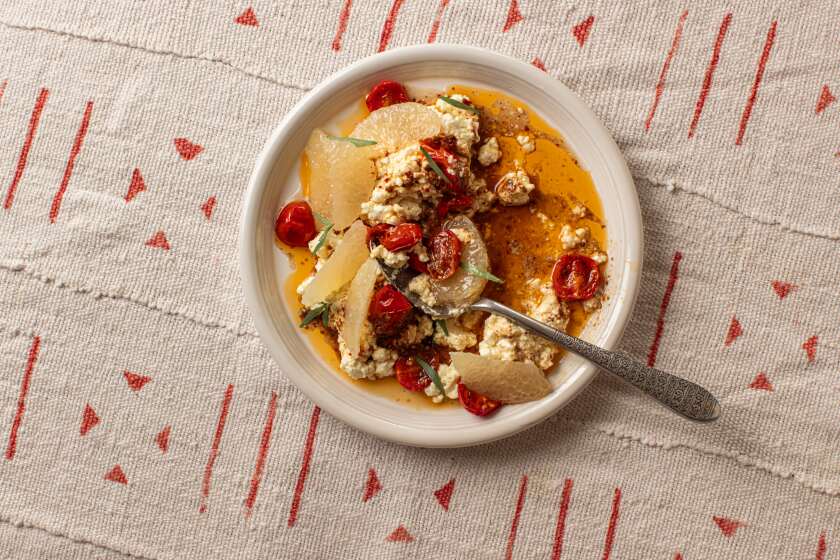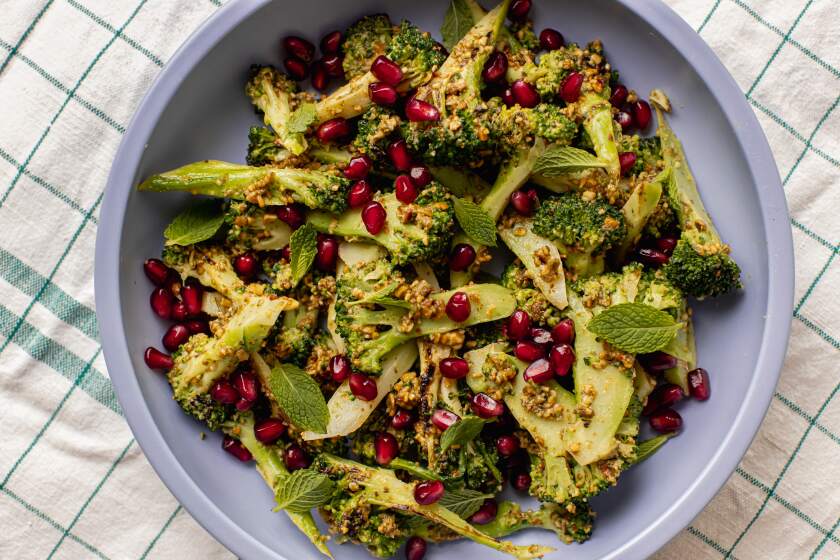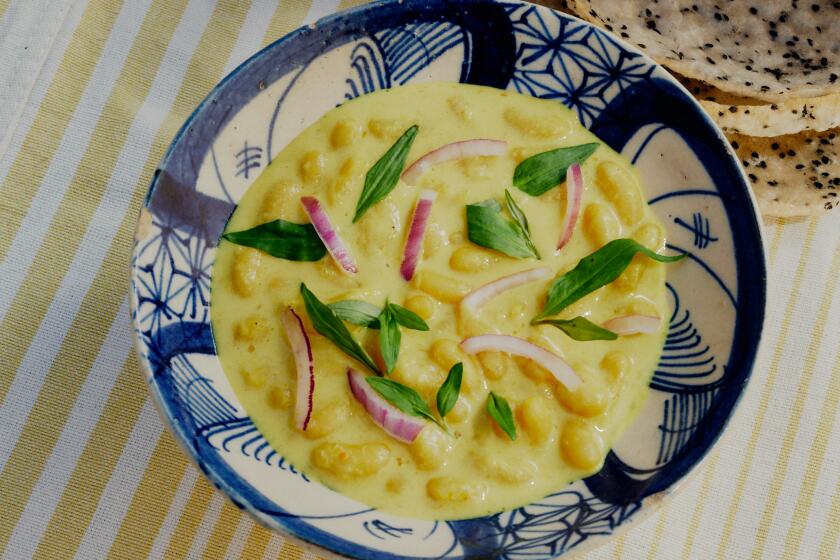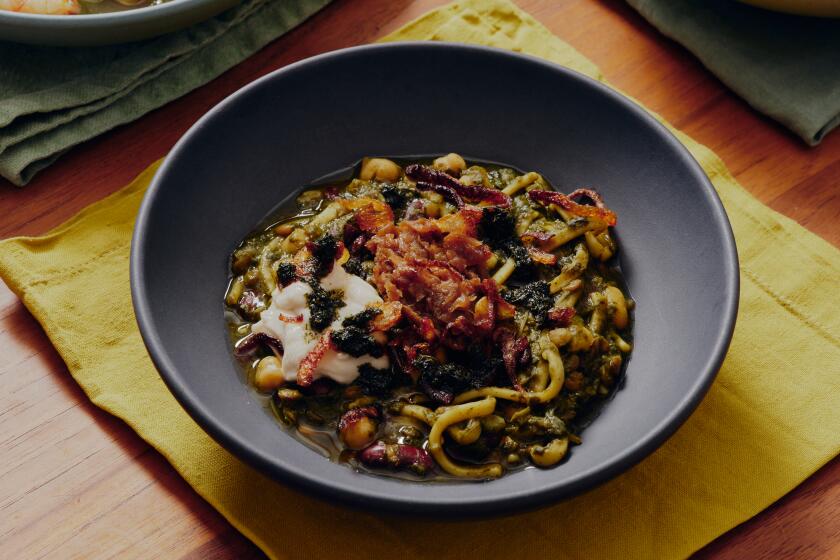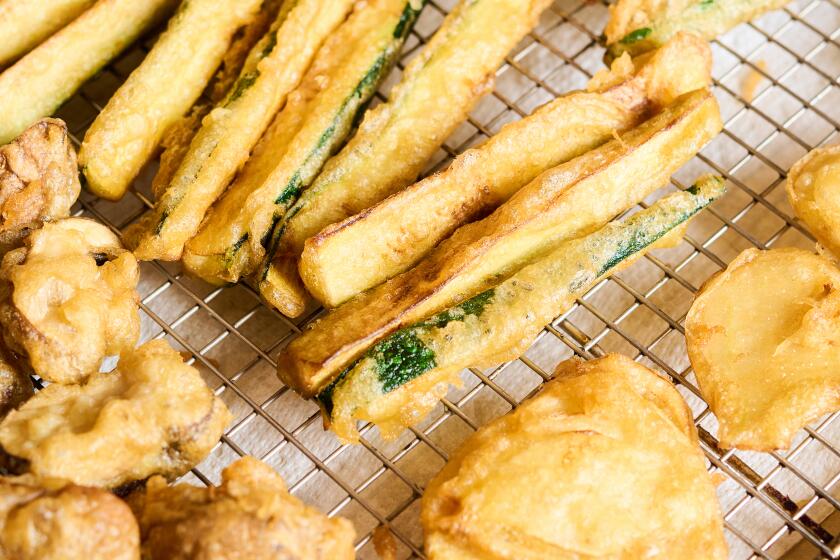Whipped Brie de Meaux with Tellicherry pepper and fig compote
CIVILIZATION has its strong points, but few are more convincing than a beautiful dinner party. Think of it: a sequence of courses strung together like lanterns, happy guests at table, an evening of camaraderie and shared gastronomic attention laid out in pressed linen and descending forks.
Abstractly, it seems like the perfect time for such an evening. Why not capture the slow languor of the last weeks of summer -- the season of white slacks and beach tans and invisible school buses -- while we still can? Practically, however, the idea of spending a day wilting in the Saharan wind farm of your hot kitchen is a bit demoralizing.
But imagine a cool dinner party, composed of perfectly articulated cold dishes that can be prepared ahead of time, with limited heat, at your leisure. Imagine the pleasure of anticipating your guests with five courses already accomplished and waiting inside your refrigerator or arrayed serenely on a counter -- your linens unfurled, candles flaring, the wine as cool as you’ve been for hours.
So come in, you bid your guests. Leave the purses, the bags, the weight of the outside world and the undulating heat.
Accept the offered glass and a room unsubjected to ovens or anything more rigorous than the evening air through an open window. Certainly not the adrenaline of last-minute preparation or the retreating heat from an active stove: The host hasn’t cooked all day.
Then, soon, to the table.
First, cold spheres of avocado glace in a frosted glass -- almost like guacamole ice cream, with a fine dice of ripe tomato and a few cilantro leaves scattered over, and a drizzle of great olive oil. The glace seems somehow richer than it is, almost decadent. Mayonnaise? Maybe creme fraiche?
But no, it’s a pair of ripe Hass avocados and thick Greek yogurt, whipped with a little jalapeno and lemon juice, and then set in the freezer for a few coalescing hours, with just a stir now and then. Who needs an ice cream maker?
The glasses filled with the glace have been in the freezer until service, when the garnishes complete the dish.
Gravlax, simplified
WINE ebbs and flows, the light wanes, the temperature drops by degrees.
The second course: cool, silky albacore gravlax layered with thin slices of potato and strategic dabs of creme fraiche. A cone of tapenade and a pair of caper berries sit nearby, adding landscaping to architecture.
Albacore, which is wonderful this time of year, lends itself superbly to the salt cure of gravlax, needing only 24 hours in the refrigerator and none of the weighting and turning of traditional gravlax.
All you’ve done is throw the fish into a Ziploc bag, along with salt mixed with sugar and cracked black peppercorns, a small pour of Armagnac.
It’s a fantastically easy method, all the more so for its yield: rich yet almost translucent slices of briny tuna, redolent of pepper and the vague spike of brandy. Pairing it with cool slabs of potato brings out the subtle flavor of the gravlax; the textures play off each other too. A dab of tapenade pulls the whole thing together.
Next comes coffee-infused duck breast, fanned out around a French green lentil salad. The duck gets the spectacular treatment laid out by chef Marcus Samuelsson in his “Aquavit” cookbook, including a night marinating in strong coffee laced with shards of cinnamon sticks and green cardamom pods. The duck breast is then cold-pan-roasted with whole coffee beans and more spices.
Start with the duck in a cold pan, and let the heat rise gradually -- you don’t want the shock of sudden full flame any more than your duck does. The fat renders off gently; the finish is a little Port.
This can be accomplished at leisure, perhaps the morning of the party -- before the sun gets hot and while a cup of espresso has you already measuring out coffee beans. (Cook slowly. Cook happy. Your food will reflect your state of mind as clearly as if you calligraphed your feelings onto the damask tablecloth.) Then stash the dish in the fridge, pulling it out an hour or so before serving and letting it come to room temperature. With nothing sweet involved, and the duck sliced thin, it actually seems light.
Act 4 is a cheese course: soft quenelles of Brie de Meaux whipped with Tellicherry pepper and sandwiched between thin planes of toasted baguette drizzled with balsamic vinegar; a luscious spoonful of fig compote goes on the side.
It’s an elaborate cheese plate gone minimalist, the flavors marrying one bite at a time.
A sweet finish
FINALLY, dessert: blackberry soup with juniper-infused cream and a nest of candied lemon peel. The soup is frothed at the last minute with soda water, which lightens the flavor, the texture and the color -- the dark purple foaming briefly into crimson.
This little touch of showmanship is fun, really, at this point: It serves to remind you and your guests of how much work you could have been doing all evening. Instead, you serenely pour the soup, spoon out the cream, add a tangle of lemon peel and serve. The flavors of berry and heath are deep, coolly intense, layered like an Oregon forest.
Clink your glasses. Watch the sky absolve itself of the responsibility of so much heat. Feel the warmth of friendship and hospitality replace that of the sun, and realize it’s for this that we like to cook in the first place.
Put the figs and wine in a small saucepan, bring to a boil and simmer, stirring constantly, until most of the Port has reduced, 5 to 6 minutes. Remove from the heat and reserve.
Remove the rind from the Brie; you should have about 8 ounces left. Put the cold cheese into a mixer with a paddle attachment and beat at medium speed, scraping down the sides from time to time, for about 10 minutes, until the cheese is very white and creamy. Beat in the pepper.
Add 1 tablespoon oil to a large skillet and heat over medium heat. Drizzle about one-eighth teaspoon of balsamic vinegar over each slice of baguette in a thin line, brush lightly with oil on both sides and cook each side until golden brown, about 2 minutes. Brown the bread in batches. Remove from the heat and reserve. (The bread can be stored in a plastic bag or container until needed.)
For each serving put a crouton on the plate, then angle a quenelle of Brie over the crouton. Top with a second crouton and another quenelle of Brie, then another crouton. Place about a tablespoon of the fig compote and a sprinkle of fleur de sel next to the stack and serve immediately. Repeat for six plates total.
Get our Cooking newsletter.
Your roundup of inspiring recipes and kitchen tricks.
You may occasionally receive promotional content from the Los Angeles Times.


